AI is transforming student engagement by providing real-time analytics that identify challenges and improve learning experiences. By tracking student behavior, predicting risks, and providing support, AI helps universities improve retention and success rates.
Table Of Contents
AI is changing education by providing real-time insights into student engagement, predicting learning challenges, and improving retention rates. Universities are using AI-driven analytics to strengthen student support systems, automate administrative tasks, and create personalized learning experiences.
Georgia Tech’s Jill Watson: This AI teaching assistant responded to 10,000 student queries with a 97% accuracy rate, reducing faculty workload and ensuring students received instant, reliable answers.
Nova Southeastern University: By using an AI-powered dropout prediction system, the university identified struggling students early, leading to a 17% increase in first-year retention within just 15 days.
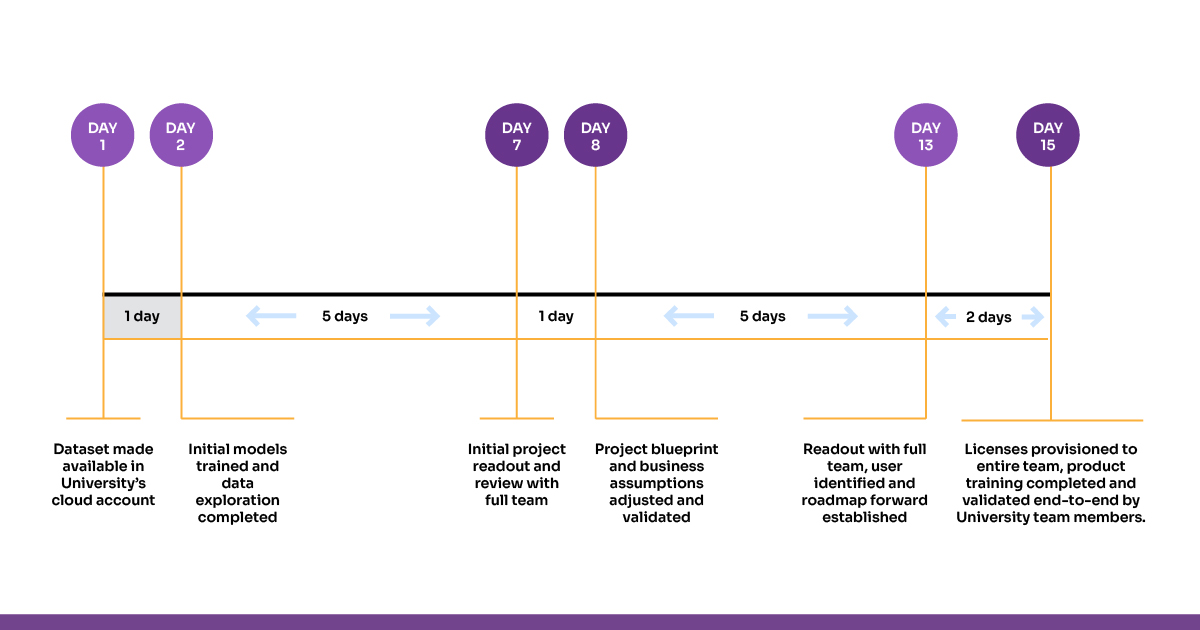
Read more: How can Student Inquiry Management be transformed through AI solutions?
By using real-time analytics, universities can address student needs, improve engagement, and overall academic success. This blog will explore how AI is changing the future of education.
How AI Helps Universities Improve Student Engagement?
AI-powered analytics incentivize universities by collecting real-time data on student performance and participation. This allows them to identify struggling students, improve courses, and provide better support services.
1. Personalized Learning Paths
AI evaluates student data, such as performance, learning preferences, and participation, to create personalized learning paths. Universities can use these insights to provide course materials, recommend resources, and adjust teaching methods for each student, ensuring they receive the support they need to succeed. For example, adaptive learning algorithms have led to a 29% improvement in student interaction and interest by providing lessons to individual needs. This approach helps students stay engaged and improves their overall learning experience.
2. Early Intervention for At-Risk Students
Real-time analytics help universities detect academic struggles, disengagement, and attendance issues early. AI evaluates attendance, grades, and participation to identify at-risk students. Georgia State University’s predictive analytics with 800 risk factors led to a 22% rise in graduation rates through interventions. With Edmo’s Conversation Intelligence, universities can analyze student sentiments, concerns, and intent in real time by making use of one of its key attributes, Smart Sentiment & Intent Analysis. This allows for personalized support, timely help, and better student retention.
3. AI-Powered Chatbots Support Students
AI chatbots improve student support by providing instant responses, reducing administrative tasks, and improving efficiency. They assist with admissions, academic advising, and general inquiries. Thompson Rivers University’s chatbot handles 83% of application requests, easing staff workload. With Edmo’s Conversation Intelligence, universities can achieve inquiry response times within 1 minute for faster, more accurate support. Automating routine tasks allows universities to focus on personalized assistance, improving student engagement, and operations.
4. Real-Time Feedback for Better Learning
AI provides instant feedback on assignments, quizzes, and interactions, helping students improve quickly. Educators can track progress and adjust teaching methods in real time. Automated feedback reduces workload, allowing teachers to focus on mentoring. At Stanford University, an AI tool improves teaching quality without in-person evaluations. This increases student satisfaction and engagement. AI-driven insights create a more interactive learning environment.
5. Data-Driven Decision-Making for Universities
AI-powered real-time analytics help universities make better decisions to improve student engagement and academic success. By evaluating student performance, engagement trends, and resource allocation, universities can improve learning experiences and enhance support systems. A survey found that 30% of higher education staff use data analytics extensively for decision-making. This data-driven approach allows universities to proactively address challenges, improve retention rates, and create a more effective learning environment.
Read more: Demystifying SOP and Essay Analysis with AI Solutions
Final Thoughts
AI-powered analytics are transforming education by providing real-time information on student engagement and performance. By evaluating data, universities can identify struggling students early, personalize learning, and improve teaching methods. AI also improves student support services, making resources more accessible and efficient. Predictive analytics helps universities plan for future enrollment and resource allocation, boosting retention rates. With Edmo’s AI solutions, universities can boost student success with real-time insights and predictions. Over 200 institutions worldwide trust Edmo—now is the time to use AI for a smarter, student-focused learning experience.
Also Read: Crisis in Enrollment: Strategies to Recover and Grow Your Student Body
Maximizing Enrollment Efficiency: The Power of Automation
EDMO and One Education join forces to help Southeast Asian study abroad aspirants

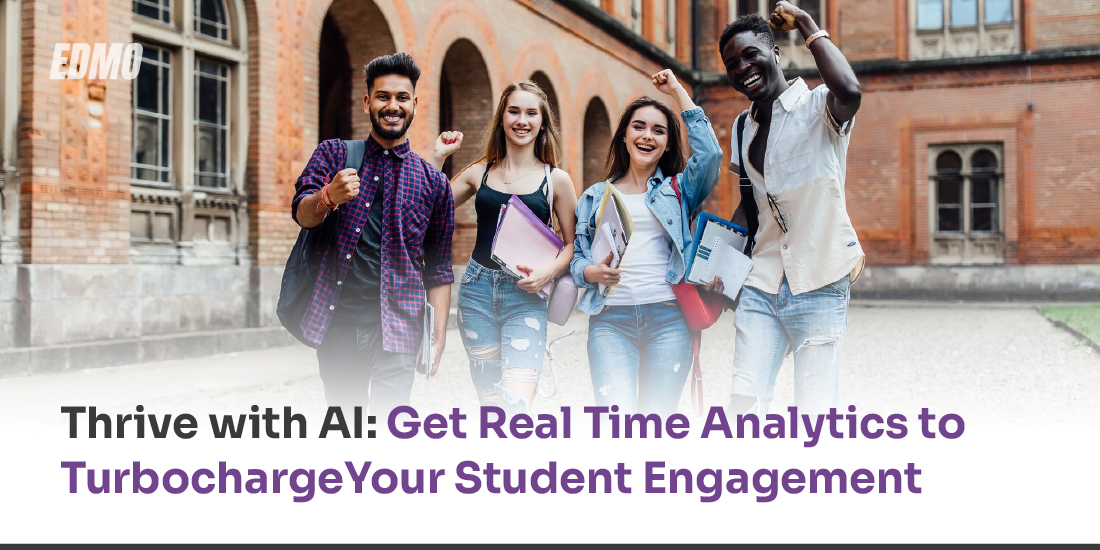
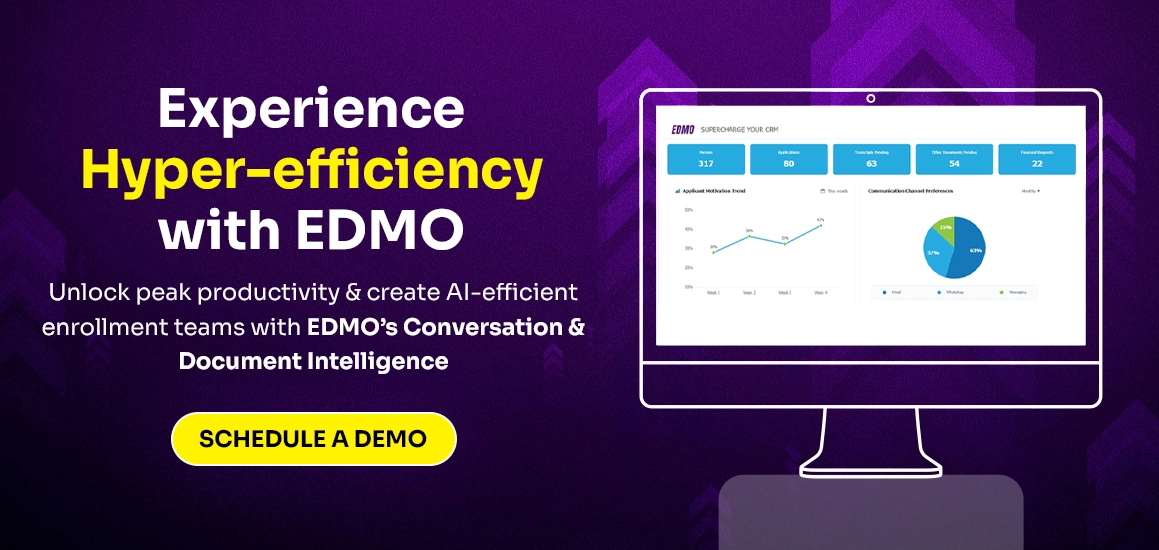


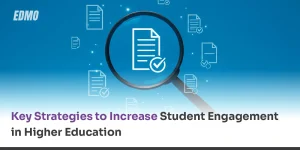
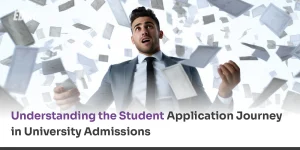
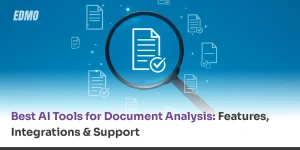
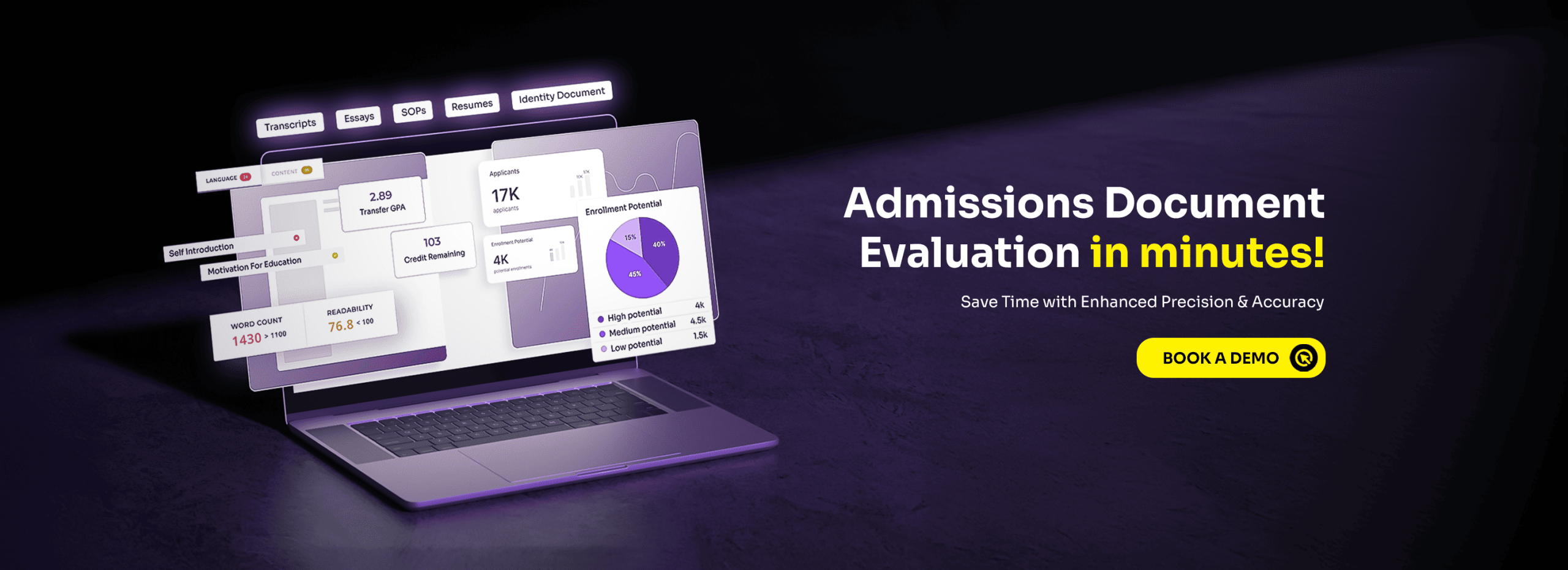
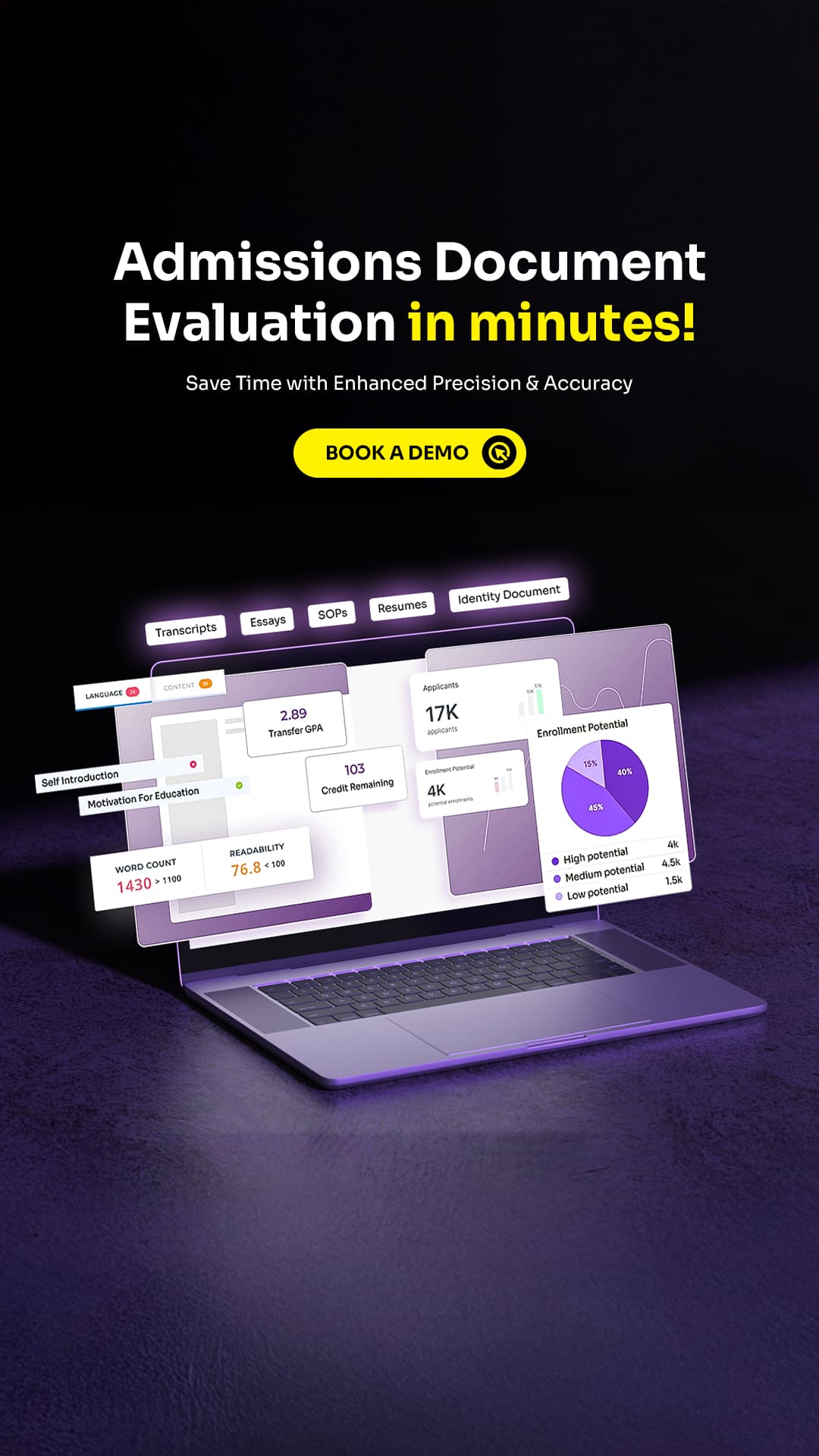
No comments yet. Be the first to comment!
Leave a Comment